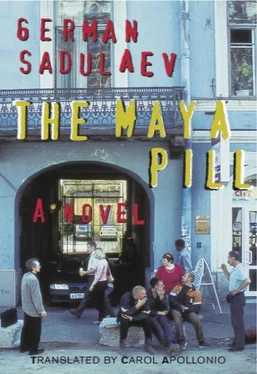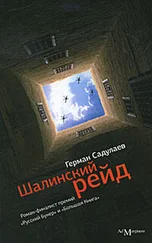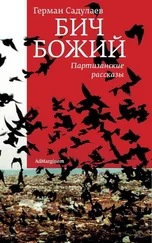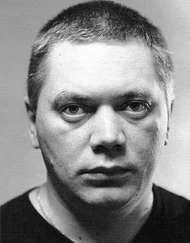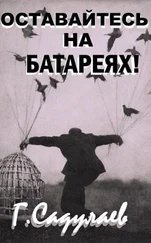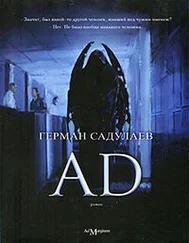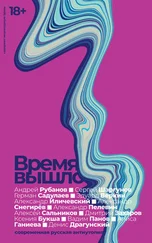“The answer to that question depends on which position you adhere to in that Hindu dispute about the nature of reality—the first or the second.”
“Personally, I prefer the third school, the one with the singing and dancing. But you’re apparently a secret follower of those luckless philosophers who were poisoned with fly agaric before the dispute began. I can tell that your answers won’t lead to anything of substance. Let’s close the subject. Go on about the Khazars.”
“So Khazaria became a transit center for trade between east and west, north and south. Anything with fish paste added sold much better everywhere. This made Khazaria wealthy and prosperous, but only for a while. The fish paste eventually destroyed the underlying economy. Nothing was as profitable as making fish paste. Gradually the Khazars stopped doing anything else, and concentrated all their efforts on mixing the drug and using the paste to cement their trade relationships. Soon the wealth of Khazaria started attracting attention from hostile nations, and the Khazars were powerless to resist. They had already forgotten how to plow, and make war, and build. In fact, it was the Byzantines who built their last fortress, Serkel. Instead of their native warriors they used mercenaries, and the mercenaries had no particular desire to give their lives for someone else’s country. Khazaria fell under enemy attack: Rus from the west, nomads from the east. After their cities were destroyed, many Khazars fled to Europe, taking with them the recipe for the fish paste. In Europe the concoction was modified and refined for specific needs, either by the Khazars themselves or by people who had managed one way or another to get their hands on the recipe. Since the time of the great Khazar migration to Europe, trade began to develop, towns grew into great cities, the bourgeoisie emerged, and capitalism was born. When the mysticism of the Middle Ages fell into decline, sorcerers and alchemists gave way to other pseudo-scientists specializing in such fields as marketing and management. These sciences are essentially the same as their predecessors: They’re merely research into the most effective ways to use fish paste. And how to turn everything into money.”
“So what did they come up with? How did they use the paste?”
“Every way you can imagine. The Europeans were far more talented and inventive, and made considerably more progress, than the ancient Khazars, who had never managed to turn their product into anything more than a disgusting and smelly slime. As you know, in the Netherlands, which has always been a strong country in the chemical industry, they figured out how to produce the stuff in the form of neat little pink pills with no taste or smell.”
“Yes, the pills. I have some. Want a try?”
“No thank you. I have some of my own.”
“Fair enough. What happened then?”
“It just took off. At first the chemists were mostly interested in the actual recipe—that is, the specific ingredients that went into it and their proper proportions. Later on, some brilliant thinkers realized that the really important ingredients were actually the four principles of the gunk’s effect: suppression of the will, an increase in suggestibility, arousal of pleasure, and the inducement of a hallucinatory state. Here too, of course, you need to know in what proportions to combine these effects: to what degree ought the will be suppressed, ought suggestibility be enhanced, ought the pleasure centers of the brain be activated, and then which particular hallucinations ought to be induced for whatever specific purpose. Once they saw that the paste’s value was in these states of mind, not so much in the goo itself, they discovered that they could reproduce them by other means in just about any form you could think of. Those same principles go into every TV broadcast or election speech. Books too, for example. Books are also pills!”
He had no more questions. He just stood up and went out the open door. Didn’t even say good-bye.
It was already light outside. I’d managed to get a couple of hours of sleep. Then I woke up, all by myself, without the alarm clock. It had been a long time since I’d set it; what was the point?
I washed, shaved carefully, brushed my teeth, and took a shower. I looked in the cupboard and chose an outfit that would make a good impression, professional but not too formal. And headed for Nevsky Prospect.
Nevsky was already crowded with people and cars. Amid the dense fabric of the city’s usual noise I heard a strange sound, something like little bells ringing. I looked down the street in the direction of the noise, and saw a sparse but exotic-looking little procession approaching. Girls wearing bright Indian saris and men draped in what looked like white and saffron-colored sheets. They were all singing and dancing. One boy was beating a drum that hung on a strap around his neck; some of the others were tapping miniature copper cymbals. It was the cymbals’ thin, bell-like sound that I had heard from a distance. I thought, there they are, the philosophers of the third school.
The procession came closer and soon drew even with me. Alongside the singers walked a very pretty girl with a red dot on her forehead. She was holding a tray with some round pinkish sweets arranged on it. I stood on the edge of the sidewalk and watched the philosophers of song and dance go by.
She came up to me and held out the tray:
“Take one!”
“What is it?”
“Imagine that it’s a pill that will relieve you of doubt and suffering forever.”
“But how?”
“It will end your material existence, which is the source of both doubt and suffering.”
Well now. So they have pills too. To help one lead a purely spiritual existence. But she’s a nice, normal-looking girl! What got her so involved in… philosophy? And she’s not shy about preaching, apparently—just comes right out with it. Must be new at this.
“No, I’m sorry. I’ve already heard about you. And I like you, really. I far prefer your methods to those of other schools. But… I’m not ready yet.”
The walk light turned green and I started across the street. The procession continued on its own way. Within a few minutes, all I could hear was that thin, bell-like sound, mixed in with the noise of the cars and people. And then it faded away, dissolved into the din of the great city.
I walked down the canal embankment that ran perpendicular to Nevsky Prospect, and stopped in one of my favorite cafés, one that was relatively quiet for this part of the city. I waited briefly in line and ordered an espresso.
I didn’t really want any coffee.
I needed to gather my thoughts.
Though I had already made my decision.
I needed to find the business card.
And that wasn’t difficult.
I knew that it wouldn’t be.
Not the kind of business card that you stick in your pocket at some point, and then you decide you need it for some reason and so turn everything inside out looking for it, upending your briefcase, shaking everything out onto the floor, rummaging through your whole apartment, even checking inside books to see if you might have stuck it between the pages. And you still can’t find it.
The kind I mean is always with you. And when you finally make your decision, it’s right there where you need it.
I took my wallet out of my inside jacket pocket and opened it. There was the business card, in the transparent plastic pocket. Where my debit card used to be. But I didn’t feel at all concerned, just then: I figured I must have put the bank card in some other pocket.
There was only one word on this business card too.
And some numbers. A phone number, I presumed.
I didn’t have my cell phone with me. I’d stopped using it long ago. Hadn’t even thought to bring it along.
Читать дальше
